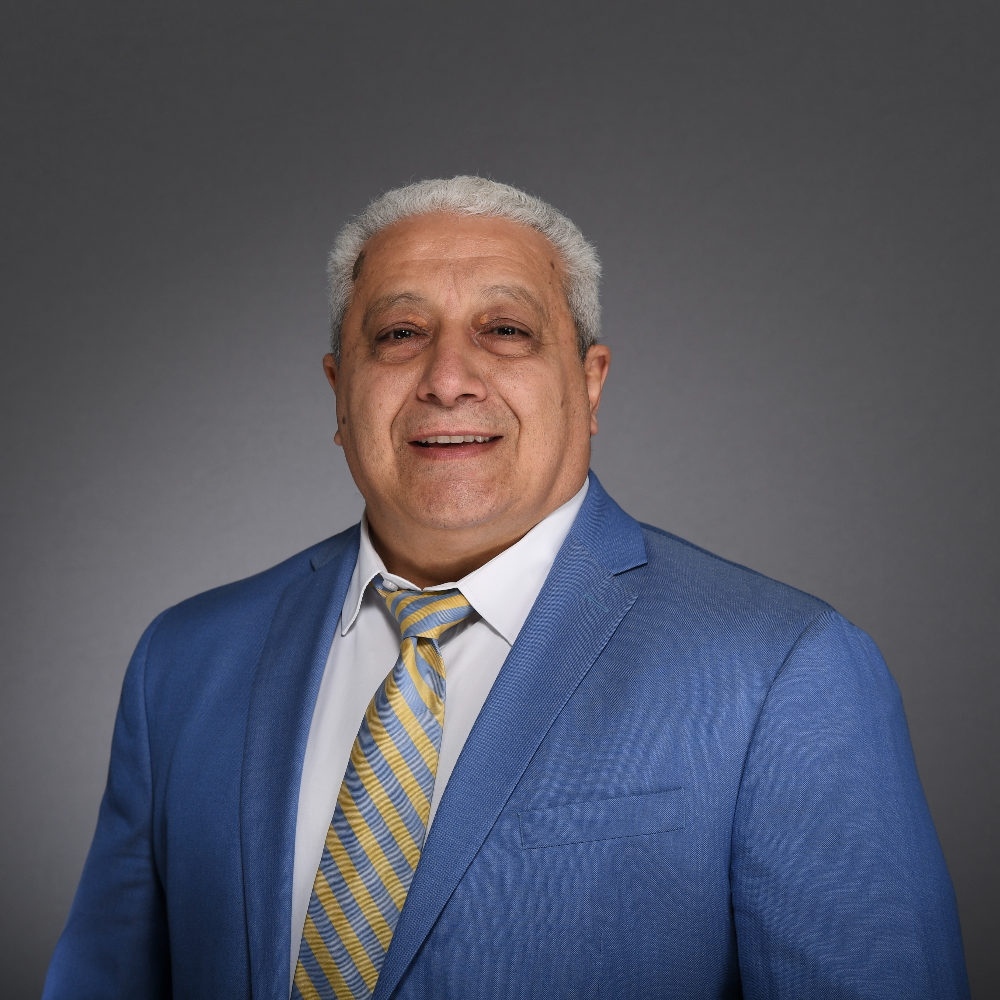Our 68-credit associate's degree prepares you to sit for the national medical assistant certification exam (CMAC), which can lead to better pay and more career options after graduation.
You'll also earn your Basic Life Support (BLS) certification as part of the program—a credential that makes you more marketable to employers.

“ At the doctor's office, you're the first person that patients meet, taking vital signs and supporting doctors in everything they do. In this role, you're making a real difference in healthcare every day. ”
- Dr. Nasser Sedhom, medical assistant program director
Learn Valuable Skills in Professional-Grade Labs
On your way to your associate's degree, you'll gain clinical skills in NYSCAS' state-of-the-art labs at 3 Times Square, where you'll use the same professional equipment found in medical offices and hospitals.
You'll learn to:
- Take vital signs, perform blood draws, and conduct lab tests.
- Help with procedures like EKGs and minor surgeries.
- Manage front desk operations and patient scheduling.
- Handle medical billing, coding, and electronic records.
- Maintain patient confidentiality and follow HIPAA regulations.
At every step, you'll have support from caring professors like Dr. Sedhom, whose 30-year medical career spans hospital management and academic leadership in the U.S. and abroad.
Your Path to Becoming a Medical Assistant
The medical assistant program is a good fit for people who:
- Enjoy helping others in a healthcare setting.
- Want to enter the medical field without years of training.
- Have strong interpersonal and communication skills.
- Pay attention to detail and can follow precise procedures.
As a NYSCAS student, you'll learn alongside classmates from many different backgrounds: career-changers seeking more meaningful work, recent high school grads interested in healthcare, and Certified Nursing Assistants (CNAs) looking to advance their careers.
What You'll Learn (and When You'll Learn It)
To earn your associate’s degree in science (A.S.), you’ll take 38 credits in core college subjects (math, writing, science, history, etc.) and 30 credits in the medical assistant major.
Each component of the major builds on the others, so you can feel confident in your skills when you graduate.
First year: Build your foundation
- Learn essential medical terminology and anatomy.
- Develop core skills in patient care.
- Learn computer applications for healthcare settings.
- Understand the ethical dimensions of healthcare.
Second year: Gain specialized knowledge
- Perform lab procedures and advance your clinical skills.
- Learn medical billing and coding systems.
- Master office management techniques.
- Complete your externship in a real healthcare setting.
Course Spotlight: Clinical Procedures
In this class, you'll combine lectures with hands-on practice to feel comfortable performing the essential duties of medical assistants:
- Taking patient histories and preparing exam rooms.
- Assisting with medical exams and treatments.
- Helping with minor surgical procedures.
- Practicing infection control and sterilization techniques.
You'll also gain skills in phlebotomy, EKGs, and testing procedures — all with the aim of preparing you for your clinical placement in your final year.
Externship: Putting it All Together Through Real-world Experience
The centerpiece of NYSCAS medical assistant program is the 160-hour externship in your final semester. This is your chance to apply your skills in practical ways:
- NYSCAS arranges your placement at a partner clinic or medical office.
- You work under professional supervision with actual patients.
- You apply both your clinical and administrative skills.
- You expand your professional network and gain resume experience.
Many students get job offers directly from their externship sites. If you’re one of them, you’ll be able to start working right after graduation.
“The externship is a life experience. Students join a clinic or a hospital, and they are face-to-face with patients. It is considered valuable and can count toward their professional experience.”
- Dr. Nasser Sedhom, Medical Assistant Program Director
Certification That Sets You Up for Success
While you can practice as a medical assistant without certification, becoming certified through the American Medical Certification Association (AMCA) gives you a competitive edge.
As a NYSCAS student, you'll prepare for certification throughout your coursework. We encourage you to take the Clinical Medical Assistant Certification (CMAC) exam provided by the American Medical Certification Association (AMCA) exam one month before graduation. This way you graduate with both your diploma and certification.
Certified medical assistants often find that they have better job opportunities, higher pay, and more potential to advance in their careers.
“I push my students very hard to take the certification exam before they graduate. I want them to have a better chance of being hired at hospitals where they can make more money and have more benefits.”
- Dr. Nasser Sedhom, Medical Assistant Program Director
Flexible Options That Fit Your Life
We understand that many NYSCAS students balance work, family, and education. Our program offers:
- Day and evening classes.
- A mix of in-person labs and online coursework.
- Part-time and full-time study options.
- Fall and spring start dates.
- A convenient Times Square location.
Ready to Start Your Journey?
If you're passionate about healthcare and want to make a difference every day, apply now. You could be learning valuable skills in our leading-edge labs in just a few weeks!


